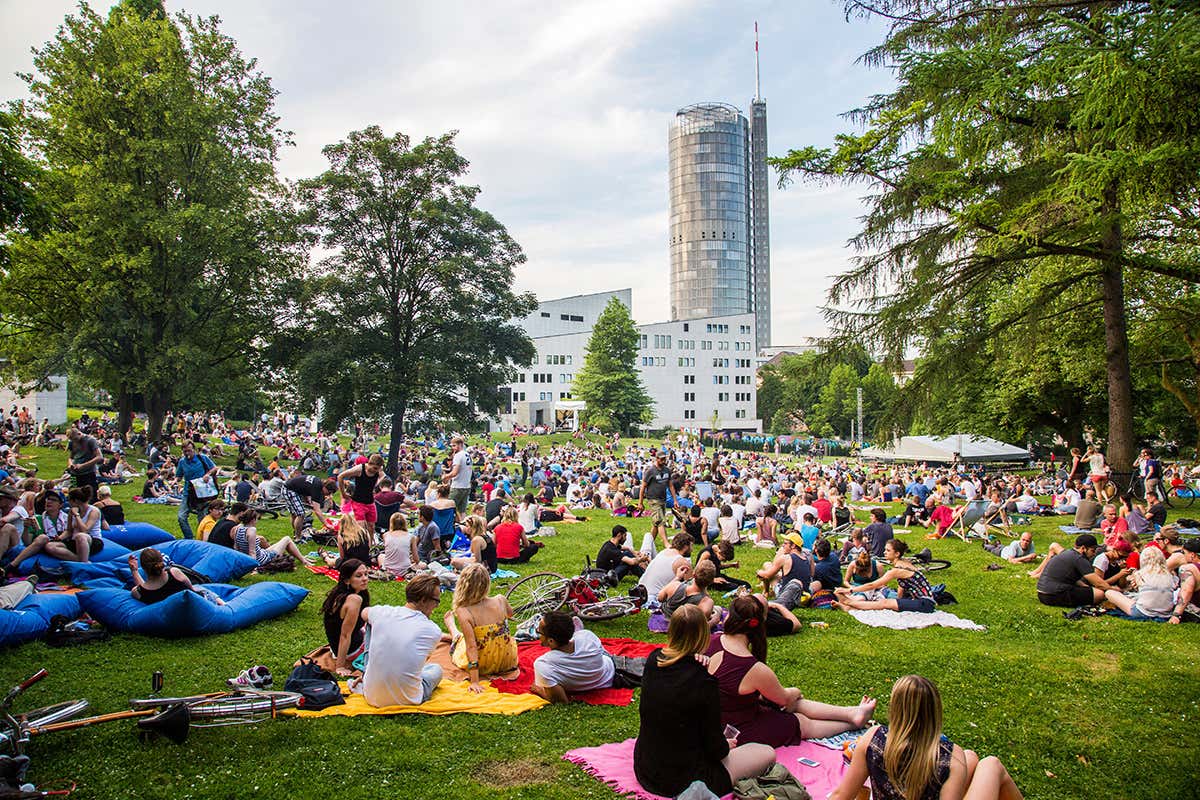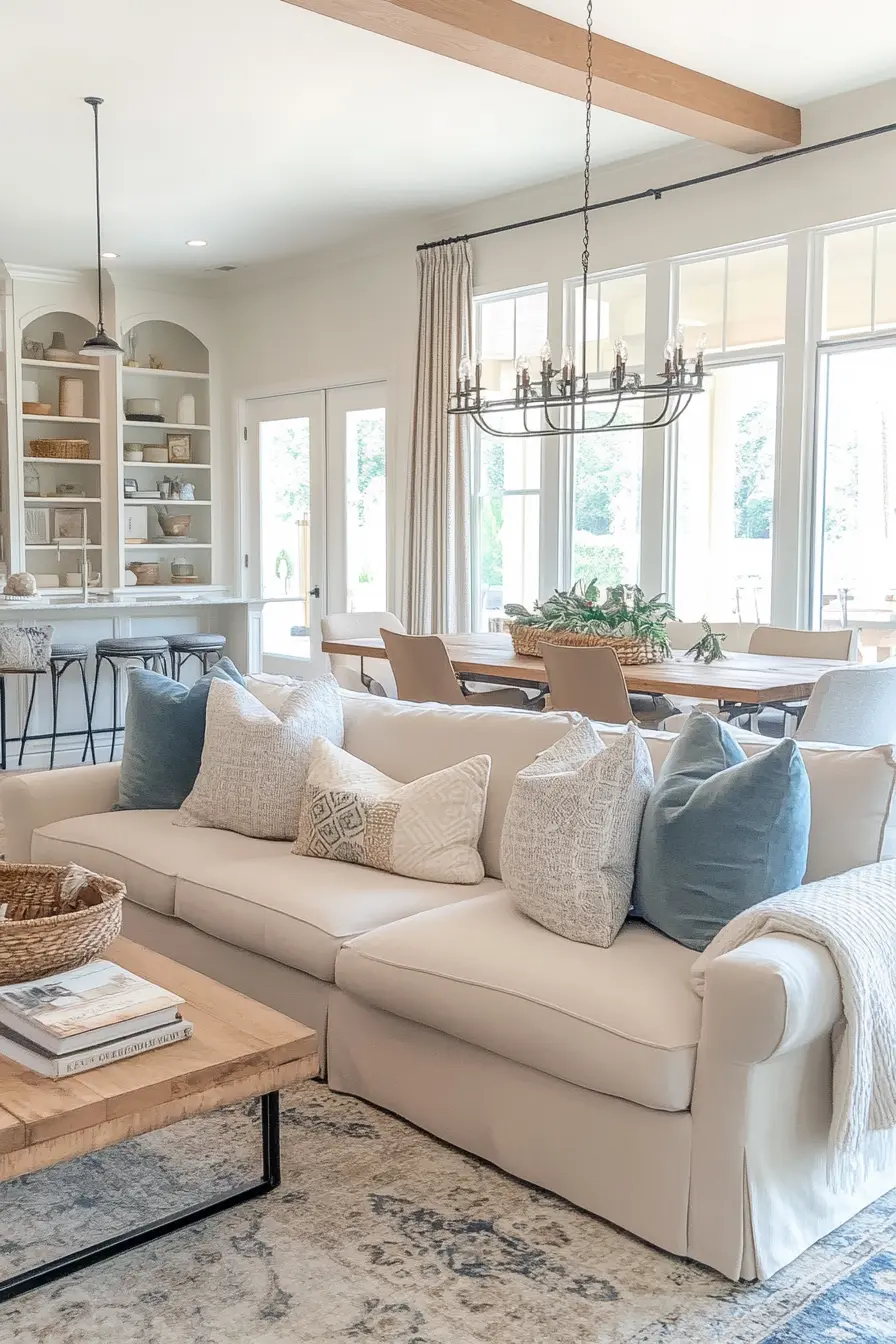The Impact of Simple Living on Mental Health and Well-Being

A Path to Clarity and Connection
In today’s fast-paced world, the concept of simple living has gained traction, prompting many to rethink their lifestyles. This movement emphasizes a minimalistic approach, advocating for less clutter, more mindfulness, and deeper connections. As people embrace simplicity, they often experience profound shifts in their mental health and overall well-being.
What is Simple Living?
At its core, simple living is about making intentional choices that align with one’s values and priorities. This transformative lifestyle includes a range of practices:
- Decluttering physical spaces: Often, our environments become overwhelming with excess possessions. Reducing clutter not only makes spaces more inviting but also alleviates stress. For instance, the popularity of the KonMari Method, as introduced by Marie Kondo, encourages individuals to keep only items that “spark joy.”
- Reducing consumerism: Many people find freedom in saying no to the incessant pressure of buying the latest gadgets or trends. Embracing a more frugal mindset encourages individuals to prioritize experiences over material goods. For example, opting for a weekend camping trip could offer more satisfaction than purchasing a new television.
- Fostering meaningful relationships: Simple living advocates often focus on nurturing quality over quantity when it comes to relationships. This can mean investing time with close friends and family instead of spreading one’s energy thin across superficial connections.
- Enhancing mindfulness through daily practices: Integrating mindfulness techniques such as meditation, yoga, or journaling into daily routines can help cultivate a more intentional mindset and reduce distractions.
The impact of simple living goes beyond surface-level changes. Numerous studies suggest that simplifying one’s life can lead to:
- Reduced stress and anxiety levels: When people simplify their surroundings and commitments, they often experience less overwhelm and a greater sense of control over their lives.
- Improved emotional resilience: Individuals who practice simple living may develop stronger coping mechanisms, as they learn to focus their energy on what truly matters.
- Enhanced focus and productivity: With fewer distractions, individuals can direct their attention to activities that align with their goals and passions, often leading to greater achievements.
As advocates of simple living emphasize intentional choices, individuals may find greater joy in everyday moments. This lifestyle transformation can lead to better coping strategies, fostering a sense of belonging and purpose. By making conscious decisions about what to prioritize, people can cultivate a life rich in meaning and fulfillment.
In this article, we will delve into how this lifestyle shift can serve as a catalyst for improved mental health and overall well-being, encouraging readers to consider their own lives and the potential benefits of simplification. As more individuals explore the possibilities of simple living, they may uncover a more balanced, satisfying way to navigate the complexities of modern life.

DISCOVER MORE: Click here for practical decluttering tips
The Psychological Benefits of Decluttering
One of the fundamental tenets of simple living is the practice of decluttering, which has profound psychological implications. When individuals clear away the physical clutter in their spaces, they often find that it translates to mental clarity. According to a study published in the Journal of Environmental Psychology, a chaotic environment can lead to increased levels of stress and distractibility. In contrast, a tidy and organized space fosters a sense of calm and enhances focus.
This correlation between physical and mental order suggests that the act of decluttering can yield tangible benefits for mental health. Many individuals report feeling a psychological weight lift after decluttering their spaces, emphasizing that a clean environment encourages positive mental health. Imagine walking into a clutter-free living room or workspace; the breath of fresh air one feels can invigorate not just the mind but also the spirit.
Stress Reduction Through Mindful Choices
Moreover, simplifying life extends beyond the material realm—it’s about making mindful choices that reflect personal values. Studies indicate that reducing consumerism leads to lower anxiety levels. When individuals consciously decide to minimize unnecessary purchases, they free themselves from the relentless cycle of wanting and acquiring. Instead of investing time in searching for the latest trends or gadgets, they can focus on experiences that enhance mental well-being.
Engaging in simple living often encourages individuals to prioritize meaningful relationships, which is crucial for mental health. Quality time spent with loved ones fosters a sense of belonging and support, while also allowing individuals to share and process life’s complexities. This social aspect of simple living amplifies its benefits; a study conducted by the American Psychological Association found that social connections are a significant contributor to overall happiness and mental resilience.
As individuals embrace simplicity, they may also adopt a more mindful approach to daily activities. Mindfulness practices—such as meditation, yoga, or even mindful eating—enable people to slow down and appreciate the present moment, reducing feelings of overwhelm and increasing overall life satisfaction. The integration of mindfulness into a simple living framework can act as an emotional buffer, enhancing coping strategies during challenging times.
- Promotes a sense of control: By managing what enters their lives, individuals can create environments that support their mental health.
- Encourages gratitude: Simple living emphasizes appreciating what one has, fostering a mindset that celebrates life’s little joys.
- Increases resilience: A focused life helps individuals better respond to stress, as they learn to prioritize what truly matters.
Ultimately, the impact of simple living on mental health and well-being is an ongoing area of research, but mounting evidence suggests that those who choose this path may find a richer, more satisfying existence. As the exploration of simple living continues, individuals are encouraged to reflect on their own lives and consider how embracing simplicity might cultivate a clearer mind and a more fulfilled heart.
| Category | Details |
|---|---|
| Reduced Stress | Simple living encourages a decluttered mind, leading to reduced anxiety levels. The less we own, the less we feel overwhelmed by responsibility. |
| Enhanced Focus | Focusing on what truly matters becomes easier. This shift promotes better mental clarity and reflection, ultimately improving decision-making and overall well-being. |
The concept of simple living significantly impacts mental health and well-being, functioning as a catalyst for achieving a calmer and more focused state of mind. When individuals embrace simplicity, they also embrace the idea of prioritizing their mental peace over consumerist values. This lifestyle shift often results in a favorable paradigm where stressors are minimized, and personal goals become more attainable.In addition to reducing stress, another remarkable benefit of simple living is enhanced focus. Without the noise created by excess possessions and obligations, individuals can direct their energy toward meaningful experiences and relationships. This concentrated attention not only nurtures mental health but also fosters a greater appreciation for life’s simplicity, leading to a more fulfilling existence. By understanding the profound impact of simplicity, one can explore how adjusting lifestyle choices can contribute significantly to mental health and well-being. The allure of simple living encourages further investigation into practical applications and real-world examples of its benefits.
DON’T MISS: Click here to discover the power of a digital detox
The Role of Nature and Minimalism in Enhancing Well-Being
Another key aspect of simple living lies in its intrinsic connection to nature. Numerous studies have highlighted the positive effects of spending time outdoors on mental health. In fact, research published in the journal Environmental Science & Technology found that just a 20-minute walk in nature can significantly improve mood and reduce stress levels. As simple living encourages individuals to embrace more time outdoors, the psychological benefits of nature become more accessible.
When individuals choose to simplify their lives, they often opt for outdoor activities such as hiking, gardening, or simply reading in a park, which can serve as both a mental reset and a form of physical exercise. This dual benefit underscores how connecting with nature can lead to a healthier mindset. Furthermore, the practice of spending time outdoors aligns with the principles of minimalism, promoting intentional living that focuses on experiences rather than material possessions.
Emphasizing Experiences Over Possessions
In a consumer-driven society, the relentless pursuit of possessions can lead to increased stress and dissatisfaction. Embracing a lifestyle rooted in simple living shifts the focus from acquiring goods to valuing experiences, which research indicates is a more effective way to achieve long-lasting happiness. According to a study by the University of Massachusetts Dartmouth, experiences impact overall happiness and well-being more favorably than material goods. Participants reported higher satisfaction and a greater sense of connection when engaging in activities like travel, dining with friends, or pursuing hobbies.
This prioritization of experiences over possessions fosters deeper social connections and strengthens bonds with family and friends. Engaging in shared activities—whether it’s a community volunteer project or exploring a new hiking trail—can lead to a sense of shared purpose, ultimately enhancing mental health through the joy of togetherness. The shared expenditure of time and effort on experiences creates lasting memories, which yield a sense of fulfillment that material possessions often fail to provide.
- Encourages creativity: A simpler lifestyle opens up space for creative expression. Individuals may find themselves pursuing hobbies they’ve long neglected, such as painting or writing, both of which can improve mental health.
- Facilitates introspection: By simplifying one’s environment and lifestyle, there is more room for self-discovery and reflection, which can deepen self-awareness and emotional well-being.
- Instills a sense of purpose: As individuals begin to align their daily lives with their values, they often find a renewed sense of purpose that can combat feelings of anxiety and depression.
The embrace of minimalism also emphasizes the importance of self-care, allowing individuals to spend time doing what truly matters to them. In the context of the fast-paced life many lead in the United States, carving out moments for self-care becomes not just beneficial but essential. From enjoying a quiet cup of tea to practicing yoga or meditative journaling, simple living encourages individuals to rediscover the importance of nurturing their mental health.
Through nature, meaningful experiences, and a focus on self-care, simple living continues to provide individuals with the tools to enhance their mental well-being, paving the way for a more intentional and satisfying life. The potential for mental health benefits expands as more people explore the transformative power of simplicity in their everyday lives.
DIVE DEEPER: Click here to discover the art of minimalism
Conclusion: Embracing Simplicity for a Healthier Mind
In a world that often prioritizes speed and accumulation, simple living emerges as a profound antidote, offering an alternative path towards mental health and well-being. By advocating for a lifestyle focused on minimalism, conscious choices, and meaningful experiences, individuals can discover a renewed sense of fulfillment. The integration of nature into everyday life not only enhances well-being but also serves as a powerful reminder of the joy derived from simplicity.
The research is compelling—spending time in nature, engaging in shared experiences, and prioritizing self-care are all key elements that contribute to improved mental health. As shown in various studies, shifting one’s focus from **material possessions** to treasured moments and connections fosters greater happiness and emotional stability. Such a shift is particularly essential in an era where technology and consumerism can exacerbate feelings of isolation and dissatisfaction.
Moreover, embracing a simpler lifestyle cultivates creativity and introspection, allowing individuals to connect more deeply with themselves and their communities. This ultimately leads to a stronger sense of purpose and belonging. By practicing simple living, individuals can reclaim their time, energy, and mental clarity, paving the way to a more fulfilling existence.
Ultimately, as more people recognize the transformative effects of simplicity, the potential for a collective shift in societal values grows stronger. With our growing understanding of the link between simplicity and mental well-being, it becomes imperative to explore how adopting a simpler lifestyle can not only foster personal happiness but can also encourage a broader cultural shift towards valuing experiences, connections, and mental health. The call to action is clear: to pause, reflect, and embrace the simple joys of life.

